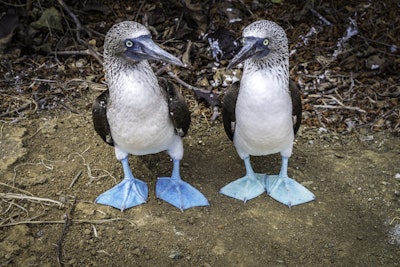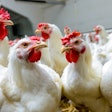
The Galapagos Islands reported its first positive case of highly pathogenic avian influenza (HPAI), resulting in tighter biosecurity protocols and the closure of several tourist visitor sites.
According to a September 19 press release from the Galapagos National Park Directorate (GNPD), three of the five specimens examined tested positive for HPAI. The type of birds infected wasn’t specified, but the Galapagos is home to several avian species not found anywhere else on earth, including the Galapagos penguin and the Darwin finches.
The Ecuador province announced several strict new biosecurity protocols in response to HPAI. Many of the measures are the same protocols you would find on a commercial poultry farm, including the disinfection of footwear and clothing, as well as the continuous sanitation of outdoor public areas and dinghies used for disembarkation.
I was lucky enough to visit the Galapagos Islands pre-COVID and can personally attest that their normal biosecurity measures are quite thorough. They had special scanners at the airport to detect the presence of non-native plants and animals and we were regularly encouraged to use hand sanitizer to protect endemic species.
The presence of HPAI will have another profound impact on the Galapagos Islands: the closure of several tourist visitor sites on the islands of Genovesa, San Cristobal and Espanola. This could have serious ramifications as tourism is the islands’ principal economic activity.
Unfortunately, it was only a matter of time before infection occurred. HPAI has steadily been making its way across South America this year and new cases were reported in Peru, Brazil and Uruguay as recently as September 12. In addition, the World Organisation for Animal Health (WOAH) confirmed the presence of HPAI in a blue-footed booby on the mainland of Ecuador in February 2023.
Hopefully biosecurity measures will help to control HPAI worldwide and we will soon see an end to this global epidemic.

















